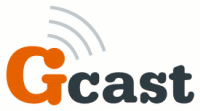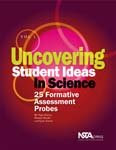
Just this week, I did an interactive whiteboard training session for high school World Language teachers. I did minor in French in college, but since I don't speak Spanish, I needed to beef up the content for this training. So, I invited a particularly spectacular Spanish teacher from a local magnet school to join me. Her name is Melisa and she is extraordinarily inventive in her use of multimedia technologies (including her interactive whiteboard) to make her lessons engaging, authentic and effective.
She introduced me to Gcast. She and her family are native Spanish speakers, but since they are all from different regions of the world, they have different accents (you can't pay for that kind of resource!). In order to take advantage of the opportunity to introduce her students to the spoken word, she uses Gcast to create "answering machine messages" that her students must listen to as a homework assignment. She phones in her podcast (the site says "it's so easy, your grandma can do it" so give it a try) and posts a link to her website. For homework, the students listen to the "message" that she or one of her family members has recorded and fill out a worksheet with several questions related to the message.
The latest example of one of her "messages" is from a make-believe real-estate customer who describes the qualities of a home that she is looking for.
Talk about innovative use! Brava, Melisa!
